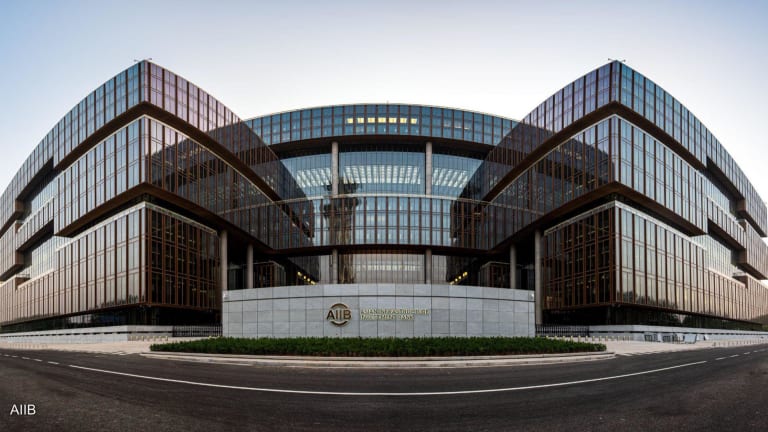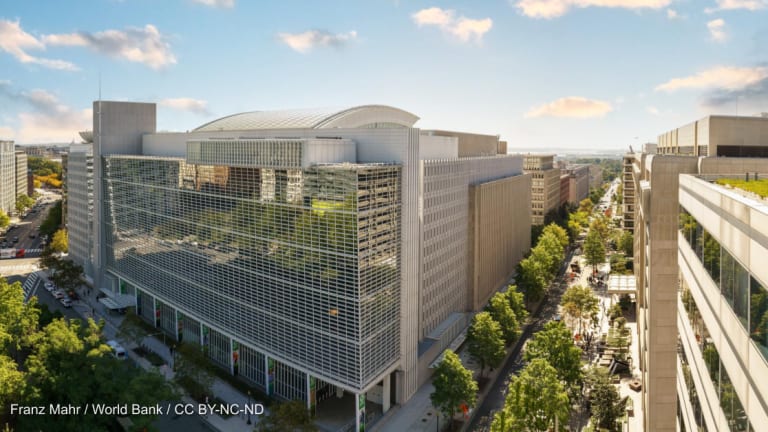AfDB put nearly $4B into new contracts in 2022. Where did it go?
The African Development Bank put nearly $4 billion into more than 70 new projects in 2022. We looked into the data to see what they prioritized.
The African Development Bank lends money to African countries to carry out large scale projects. It released information on more than 70 new projects in 2022, according to its quarterly operations summary reports. These summaries are typically published three to four times a year and include the bank’s proposed and approved projects — meaning that the projects listed in these documents are either already approved by the bank’s board of directors during the last six months or are to be submitted for the board’s approval in the next six months. Figures in the QOS are not final. Information such as loan amounts and project status are constantly being updated until the project reaches its approval stage. The figures used in this article give the latest loan amount of the project in its new project stage from the most recent QOS release. Overall, the bank allocated $3.9 billion in 2022, a decrease of around $1.2 billion from the previous year. The bank also released less projects in 2022: 75, compared to 91 projects in 2021. The countries covered by the bank also decreased in 2022, from 33 to 30. This count does not include projects with multiple countries. Devex examined QOS reports throughout 2022 to identify the bank’s sectoral and geographical priorities, as well as its top projects. Devex Pro and Pro Funding members can track AfDB business opportunities and contract awards using the Devex Funding Platform. Geographical focus West Africa took the biggest share of funding, with $2.2 billion or 55.8% of the total. West Africa was also the top region for the bank in 2021, but the total funding decreased by more than $1 billion. North Africa and the Middle East comes next, with an allocation of $828.5 million. There was a $151.8 million increase in funding from the previous year. The third region that received the most funding was southern Africa with $759.8 million; followed by regional projects that encompass the whole African continent, with $101.2 million; then Central Africa with $13.2 million; and East Africa with $10.3 million. At a country level, Senegal acquired the most funding with $503.4 million for seven new projects, an increase of $388.8 million from 2021. This was followed by Egypt with $323.9 million; then Libya with $245.8 million. Côte d'Ivoire received $236.9 million in funding, but saw a decrease of $210.9 million from 2021. Next was Morocco with $205.3 million, Niger with $193.7 million, Namibia with $184.9 million, Botswana with $184.8 million, and Cameroon with $165.6 million Multicountry projects received $517.8 million — or 13% of the total funding — while the remaining $1.1 billion went to countries outside the top 10. Sectoral priorities Agriculture and rural development remain the top priority for the bank in 2022, allocating $1.4 billion. Projects ranging from agricultural technology enhancement to food production and supply are included. Funding for this sector increased by $481.1 million compared to 2021. Social sector projects amounted to $492.3 million. Projects in this sector include a variety of themes such as: economic recovery and social coverage assistance. Multisector projects received an allocation of $454.9 million. There was a significant decrease of $800.4 million from 2021. The remaining $1.5 billion went to energy, transport, finance, communication, water supply and sanitation, and industry-related projects. Top projects This is the list of the top funded new projects in AfDB’s pipeline in 2022: • $249.2 million to improve the agricultural sector and the agricultural economy in West Africa. • $245.8 million to harness digital technologies to improve food system outcomes in Libya. • $184.8 million to support resilience and post COVID-19 economic recovery in Botswana. • $184.8 million to strengthen food security and economic resilience in Egypt. • $149.6 million to promote fertilizer consumption in West Africa. • $145.2 million to support reforms toward strengthening resilience and enhancing post-COVID pandemic recovery efforts in Namibia. • $132 million to enhance the reliability of gas-insulated substations in Mauritius. • $124 million to expand electricity distribution to increase the population’s access to quality electricity in Niger. • $110.4 million to support food and nutrition goals, agriculture, rural development, and social protection in Senegal. • $110 million for the construction of dams and downstream conveyance for irrigation in Eswatini.
The African Development Bank lends money to African countries to carry out large scale projects. It released information on more than 70 new projects in 2022, according to its quarterly operations summary reports.
These summaries are typically published three to four times a year and include the bank’s proposed and approved projects — meaning that the projects listed in these documents are either already approved by the bank’s board of directors during the last six months or are to be submitted for the board’s approval in the next six months.
Figures in the QOS are not final. Information such as loan amounts and project status are constantly being updated until the project reaches its approval stage. The figures used in this article give the latest loan amount of the project in its new project stage from the most recent QOS release.
This story is forDevex Promembers
Unlock this story now with a 15-day free trial of Devex Pro.
With a Devex Pro subscription you'll get access to deeper analysis and exclusive insights from our reporters and analysts.
Start my free trialRequest a group subscription Printing articles to share with others is a breach of our terms and conditions and copyright policy. Please use the sharing options on the left side of the article. Devex Pro members may share up to 10 articles per month using the Pro share tool ( ).
Alecsondra Si is a Junior Development Analyst at Devex. She analyzes funding data from bilateral and multilateral agencies, foundations, and other public and private donors to produce content for Devex Pro and Pro Funding readers. She has a bachelor’s degree in International Studies - major in European Studies from De La Salle University, Manila, Philippines.




